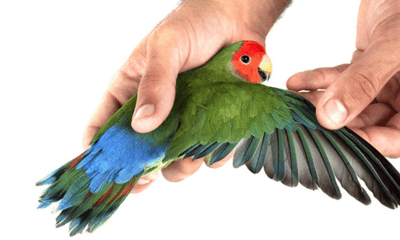Dental disease is one of the most common health conditions affecting cats, with 70% of cats experiencing some level of dental disease by three years of age. Cats tend to accumulate bacteria, debris and plaque from the food they eat on the outside of their teeth. This means they are prone to develop gum disease, tartar and plaque build up, smelly breath and abscesses, all of which can develop into infection and tooth loss.
Plaque is the film you feel on your teeth when you wake up in the morning, formed by saliva, bacteria and food particles. Plaque can very quickly turn into tartar, which appears as a hard yellow deposit on the teeth. This can cause gum infection, the first stage of periodontal disease. Bacteria from plaque accumulation can also cause infection in the lungs, liver, kidney and heart. This shows just how quickly periodontal disease can start without proper dental care.
Establishing a good dental maintenance routine for your cat from an early age is vital for their ongoing health and happiness. With proper feline dental care, you can prevent your cat from developing dental disease and keep their breath smelling fresh.
Regularly checking their mouth
Whilst it may not be the most enjoyable experience for your feline, it is important to regularly examine the health of your cat’s mouth. If you find it too difficult to examine your cat’s mouth safely or without them getting distressed, we recommend taking them to the vet for a check-up.
Your cat’s teeth should be clean, white, and free of any chipping. In addition, there should be no sores or lesions on their gums or in the back of their mouth. Their gums should be pink and healthy, with no signs of redness, swelling or bleeding. Your cat’s breath should not have a bad odour, as this can be a sign of infection. As well as undertaking regular checks of your cat’s mouth, it is important to be alert to other symptoms of dental disease:
- Excessive drooling at the mouth
- Difficulty swallowing or chewing food
- Changes to eating patterns or weight
- Increase in aggression
- Bleeding or ulcers on gums
- Unusually bad breath
- Gum inflammation
Teeth brushing
The gold standard for cat oral care at home is teeth brushing. Regular brushing is an essential component to maintaining healthy teeth and gum and preventing dental disease. Brushing your cat’s teeth every day is recommended to keep their teeth and gums in tip top shape. It is important to begin brushing their teeth from a young age so they get used to being touched inside their mouth.
When brushing your cat’s teeth, make sure you use a toothbrush specific for cats, as they are smaller in size and have softer bristles than human toothbrushes. You may also like to try with a finger brush to make the process easier. It is also vital that you use pet toothpaste, as the high levels of fluoride in human toothpaste can upset your cat’s stomach. Using a beef or chicken flavoured toothpaste can make the process more bearable for your cat. After you have finished brushing your cat’s teeth, it is important to give their gums a massage to stimulate blood flow to the area, reducing the risk of gum issues occurring in the future. Be sure to reward your cat for being patient!
Dental food
It is important for your cat to have clean, strong and sharp teeth, but unfortunately many cats are not provided with adequate food for conditioning their teeth. You should feed your cat dry food that promotes oral health as these help protect their teeth from disease. If your cat eats mostly wet food, then there’s no physical abrasion when they chew, putting them at higher risk of dental disease and tooth loss.
There are a range of foods that have the Veterinary Oral Health Council (VOHC) seal on the packaging. All VOHC approved foods are proven to help control plaque and tartar on the teeth of dogs and cats. Hill’s Science Diet Oral Care contains high levels of fibre to reduce plaque and tartar build up, and has a unique kibble shape and texture to clean teeth and freshen breath. Similarly, Royal Canin Oral Care is specifically designed for targeted action. The kibble size, texture and shape encourages cats to chew thoroughly, producing a daily tooth brushing effect that helps reduce the formation of dental plaque on teeth.
Regular visits to the vet
It is highly recommended to take your cat to the vet for regular dental check-ups. If you notice any of these symptoms discussed above, you should take your cat to the vet immediately. Your vet may recommend professional dental cleaning. Performed under general anaesthesia, this allows your vet to do the following:
- A comprehensive clean, including under the gum line
- Professional scaling to remove plaque and tartar build up
- Polish the teeth to prevent plaque and bacteria
- A complete oral exam to identify problems under the gum line
Other dental products
There are a variety of products you can purchase to maintain the overall health of your cat’s mouth. There are a range of specially formulated dental treats you can offer your cat to help remove plaque, control tartar build-up and freshen your cat’s breath. Greenies Feline Dental Treats are 100% nutritionally balanced, and are approved by the Veterinary Oral Health Council. They are specifically designed to help clean your cat’s teeth by using a natural chewing action to remove plaque and tartar build-up from the tooth surfaces. While dental treats should not solely be relied on for dental hygiene, they are a useful addition to your cat’s home dental care routine.
Water additives are another great option to include in your daily dental care routine. Simply pour the water additive into their drinking water to promote healthy teeth and gums and fight bad breath. Tropiclean Dental Health Solution for Cats provides defence against plaque and tartar and noticeably fresher breath in 14 days or less with daily use as directed. You may also like to use a clean teeth gel, applied directly to your cat’s teeth without any brushing required. Tropiclean Clean Teeth for Cats Gel has a unique blend of powerful, naturally derived ingredients that helps remove plaque and tartar before it starts.
If your cat isn’t a fan of gels or water additives, you may like to try a dental chew toy! The Petstages Dental Health Chews will help keep your cat entertained while helping to remove tartar and improve dental health. They are covered in a durable mesh that helps to floss teeth and remove tartar.
By implementing a comprehensive dental care routine for your cat, you can keep their teeth clean, gums healthy, and prevent the onset of periodontal disease. Be sure to regularly check the state of your cat’s teeth and gums, and if you notice any abnormalities, seek advice from your vet as soon as possible.






